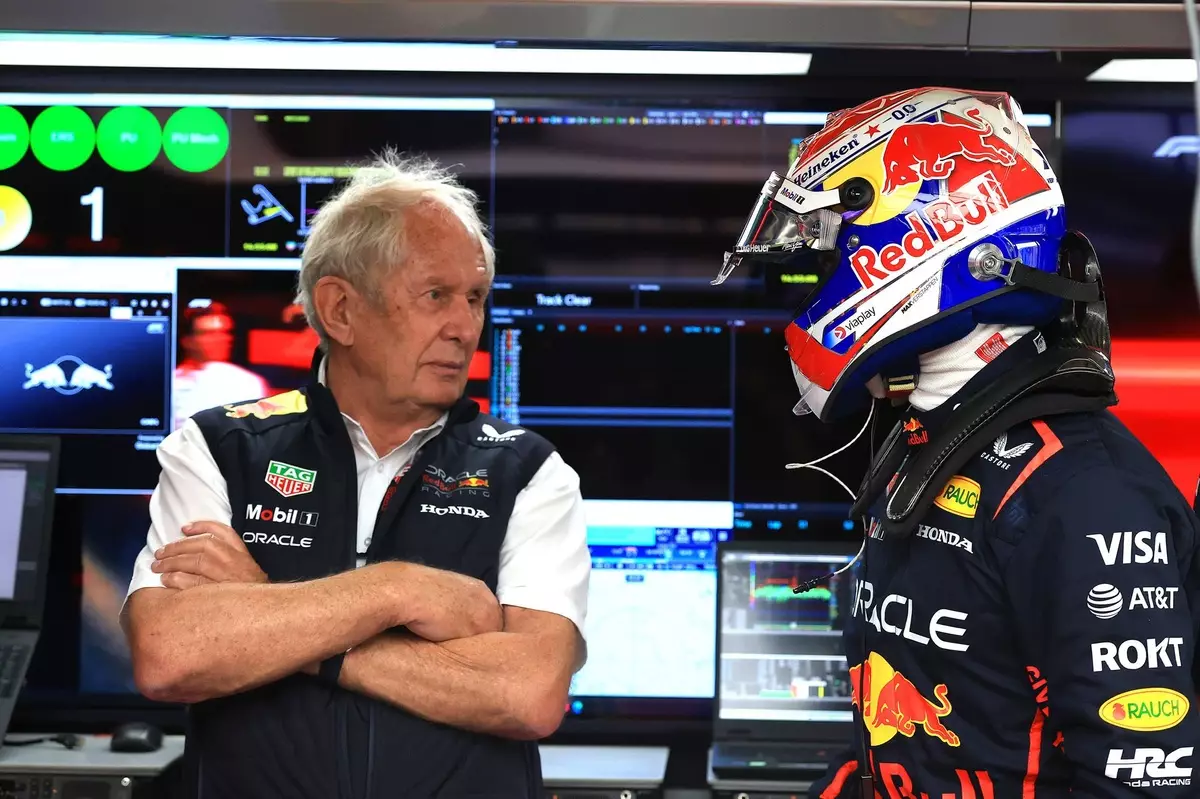Max Verstappen’s recent performance during the Spanish Grand Prix has raised eyebrows not only among fans but within the ranks of Red Bull Racing’s management. Helmut Marko, the team’s advisor, articulated his bewilderment at Verstappen’s decisions amidst the escalating chaos of the race’s concluding laps. It’s significant to consider the implications of expression and performance in high-pressure environments like Formula 1, where split-second judgment can make or break a race.
Verstappen’s downward spiral began following a safety car restart on lap 61. This moment became a critical junction in the race, where he relinquished third place to Charles Leclerc in a move that subsequent events would show to be detrimental. One cannot help but wonder if Verstappen’s reaction to Leclerc’s maneuver was a culmination of pent-up frustration, not only from that race but also attributed to the pressures of the championship season thus far.
A Chain Reaction of Errors
The situation became a rollercoaster of reactions almost immediately. During the scramble to reclaim lost positions, Verstappen faced an attempted overtake by George Russell, which only added to the pandemonium. Marko’s comments reflect a keen understanding of the intricacies of racing regulations, highlighting the fact that Verstappen, a seasoned driver, was incapable of maintaining his composure under pressure. At this level of racing, the mental aspect is just as crucial as physical speed and skill.
Marko noted that Verstappen and Russell’s encounter showed signs of carelessness on both sides, leading him to question Verstappen’s tactical awareness in a moment where he needed clarity. The repercussions of this incident—a 10-second penalty—can mean the difference between a podium finish and a profound disappointment as Verstappen settled for a lowly finish in tenth place. By tying Verstappen’s emotional state to these regulatory outcomes, one can see how mental fortitude directly influences performance outcomes on the track.
Emotional Factors in Formula 1
It is no secret that Formula 1 drivers are under immense pressure to deliver stellar performances. Verstappen’s historical clashes with Russell further complicate this particular rivalry and reflect an underlying tension that exists not just between drivers but also in the competitive landscape of F1. The emotional strain of past encounters can often lead to misjudgments, and Marko’s analysis reveals just how crucial emotional intelligence is in high-stakes environments.
Arguably, Verstappen’s decision-making could be viewed through the lens of being human: capable of error, easily overwhelmed by emotions, and sometimes unable to rationalize decisions under pressure. It’s profoundly interesting to analyze how even elite athletes can succumb to momentary lapses in judgment when tensions peak. As Marko pointed out, this isn’t the first time Verstappen has navigated contentious terrain with Russell, indicating that a pattern of emotionally charged decisions could be detrimental not just to Verstappen but also to his team’s championship aspirations.
Public Image and Accountability
After the race, Verstappen issued a public apology on social media, acknowledging that his actions were unwarranted and discussing the unsportsmanlike nature of his outburst. This acknowledgement is significant; it shows a moment of humility from a driver often characterized by a fierce competitive spirit. Marko’s half-joking acknowledgment that “an admission from Max doesn’t come easily” underlines the intricacies of the driver’s personality—an individual who thrives on the edge of competition yet must also learn the value of accountability.
The refusal of Red Bull’s management to engage in a post-race debrief stems from Verstappen’s heightened emotions, further emphasizing how critical emotional regulation is in the world of professional racing. It’s worth pondering if such a heated state could lead to more extensive repercussions as the season elongates, or whether this experience will serve as a greater lesson in self-regulation for Verstappen moving forward.
The duality of exhilaration and frustration that often defines Formula 1 careers can lead to dramatic stories, and Verstappen’s turbulent outing in Spain is no exception. As the season progresses, the question remains: How will Verstappen harness this emotionally charged experience to enhance his performance without losing the aggression that makes him a formidable competitor?


Leave a Reply